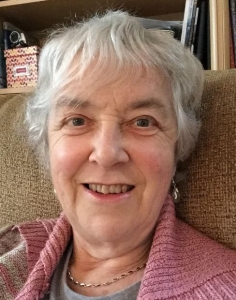A growing number of health professionals and scientists from around the world have gathered around the low carb banner.
The outstanding example is Professor Tim Noakes, emeritus professor at the University of Cape Town. For many years he followed the conventional advice on diet but developed T2D. As a sports scientist he had recommended carb loading for runners. This caused him to re-evaluate the evidence used to justify the dietary guidelines. He concluded that the guidelines were fundamentally flawed and publicly admitted his original stance was wrong.
Since then he has been severely criticised and charged with professional misconduct. Arguably he is the leading light in the global campaign to have a complete revamp of official national nutrition policies.
Unwin sets the template for other practitioners
Dr David Unwin is a GP based in Southport. He and his colleagues have pioneered the use of low carb in the practice. He has achieved national and international recognition.
In 2016, Dr Unwin was selected as NHS Innovator of the Year. In a paper on his low carb methods patient satisfaction was high from reports of feeling better and having more energy. Mean body weight fell by 9.0 kg, waist circumference fell by 15 cm, blood glucose (BG) control measured as HbA1c, fell by 10 mmol/mol or 19%. Blood pressure also dropped significantly.
The success of Dr Unwin has encouraged other GPs to follow suit in the knowledge that his methods have now gained official recognition and acceptance.
Dr Ian Lake is a GP based in Gloucester. As he has T1D himself he fully appreciates that the low carb approach is equally applicable to both T1D and T2D.
At the Preston Medical Centre in Somerset, Catherine Cassell, a diabetes nurse, has been achieving excellent results with low carb as a means of treating T2D and has been nominated for a national award.
Dr Jason Fung is a nephrologist based in Toronto who has been extremely successful in treating patients with T2D. He advocates fasting as the initial step in a programme to reverse T2D.
In the Virta Treatment Program in the USA, patients with T2D are provided with help and support to reduce their intake of carbs. Extremely positive results were obtained in a study of drugs based on 262 participants with T2D, who were compared to a control group treated conventionally.
After one year, these patients on average, lowered HbA1c from 7.6 to 6.3%, lost 12% of their body weight, and reduced diabetes medicine use. 94% of patients who were prescribed insulin reduced or stopped their insulin use, and sulfonylureas were eliminated in all patients.
Low Carb Skipton breaking new ground
Meanwhile Low Carb Skipton initiatives have included a very successful training course which saw a number of people drastically improve their blood glucose levels after adopting a low carb/high fat diet.
The Yorkshire group continues to break new ground highlighting the benefits of this eating regime for diabetics, people with other serious illnesses or those who simply want a healthier lifestyle.


